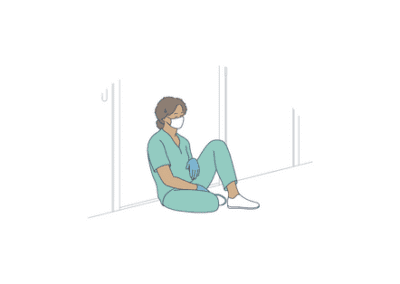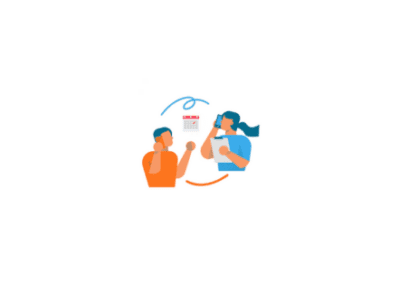Technology has changed the way the world does its business. Embedded within our supply chain, integral for communication, companies require technology to remain efficient and competitive in the current economy. Modern companies reap its benefits, helping reduce costs and improving the quality of products.
While incorporating technology has become a necessity, companies must adapt to the latest in the market. After all, every company hopes to show the market its capabilities to adapt. Companies have to adapt to this change as newer technology replaces older items to survive. Let’s understand why it is vital that your company requires the best and the latest tech in the market.
How Old Technology Impacts your Business
Every technology goes through wear and tear. Sooner or later, it becomes outdated and sometimes worthless. Companies spend a significant proportion of their revenue towards Research and Development to bring out modern systems that can replace their outdated items when it’s about to complete its useful life.
Physical technology depreciates rapidly unless constant maintenance checks are done. Software must also be updated constantly to take care of bugs and other ergonomic problems.
Here are some of the most common issues with using old technology.
Higher Energy Costs
Any company in the manufacturing or online space knows the value of technology and the cost associated with it. Outdated technologies don’t have the same power-saving ability as modern ones, and these energy costs are pretty hefty. Workplaces often work with hundreds of computers and other machines for each employee. The subsequent energy costs add up significantly when there is a better, cheaper alternative in the form of energy-saving items.
Disturbances in the process
Today, technology is embedded within an organization’s fixed processes. Inefficient technology slows down your operations and creates disturbances for your staff, which can significantly impact deadlines. Companies don’t want their workforce taking shortcuts to fulfill their deadlines at the expense of quality. As technology starts to deteriorate, the workforce might take a step backward in using it to elongate its living cycle.
Difficulty in flexible working

As more and more jobs are becoming flexible, companies are hoping employees remain as productive as they can. Consequently, businesses must ensure to give the best resources available to their employees. New technology is the best example here. It’s essential that all hardware and software systems are functional and operational 24 hours a day and updated to accommodate the newest trends in their industry. On the other hand, old technology has the possibility to relapse at any time, which can disrupt work. Companies that invest in new technology can seamlessly transform towards flexible working and operate just as efficiently from home.
Environment Impact
Inefficient technologies have a significant impact on our climate. As businesses attempt to become more sustainable in their operations, companies look towards more energy-efficient technology. Firms that actively look at their environmental footprint should identify places where technology is wasteful and then make changes to improve their environmental impact. Outdated electronics will result in e-waste which becomes wasteful for their company. Old technology, sooner or later, will become heavy and costly for your company so you should look to upgrade it.
Security issues

Securing your technology is just as important as securing any of your other physical assets. As companies become move online, the number of cyber-crimes also increases. Adopting a new technology might take a while for the company. Still, newer technology reduces the exposure of phishing and other types of cyberattacks. Technological advancements ensure secure systems and are more challenging to penetrate against cyber-crimes. Outdated technologies aren’t as robust as newer ones, and cybercriminals would find it much easier to access such systems. Cyber security experts have reported that, in 2020, security breaches had increased by 11% since 2018 and 67% since 2014.
New technology comes with much better cyber security solutions such as different anti-viruses and security patches, all of which make your company more secure.
Expensive emergency fixes and compliance issues
Companies should budget for hardware and software upgrades every year. Often these upgrades are necessary for the technology to be compliant with external systems. Whether it is a small piece of equipment that breaks or a colossal system malfunction, the company would be in a state of bother if the fix is costly. Planned preventive support usually comes with new technology as they’re typically compliant with all systems and are much more affordable than last-minute maintenance.
Moreover, industry standards and regulations constantly change to comply with cyber security issues. The newest system usually has the new rules built-in, making it easier for companies to follow the industry standards and not pay hefty fines.
Lost Opportunities
The problem with old technology is that the direct cost is relatively minor compared to the opportunity cost. Consumers get excited about new technologies as it shows that the business is looking to adapt and seek business growth. The more likely technology is to fail, the greater a chance for competitors to overtake you through newer and more productive systems in place.
Simply speaking, older technology may not be able to meet business and consumer demands, which is essential to growing your business.
Loss of Productivty
Loss of productivity impacts the workforce in the following ways:
- It will take your employees extra time to complete everyday tasks.
- Older systems are prone to breaking down and experiencing IT issues, which can significantly increase the need for maintenance and time to fix.
- Employees will waste time on resolving issues related to inefficient systems.
- There will be less scope to automate processes. Most software companies, including Celayix, work to make their software systems as automated and integrated as possible to improve productivity.
Lost Customers
All of the above points could ultimately impact your connection with your clients. It can cost you your valued customers for the following reasons:
- Your company is more vulnerable to a security breach if it uses outdated systems. If your data is compromised and customers information is affected, they may lost trust in you and take their business elsewhere.
- If your devices are running slowly due to outdated technology, you may be unable to respond to customer inquiries or process orders as quickly as your competitors.
- Slow technology can make it difficult to assist your clients. If they contact you with a question and your devices are slow, you may have to respond with “we’ll get back to you.” However, if your systems are efficient, you will quickly retrieve their information and provide them with an answer or resolution.
How do you tell if your company needs new technology?
Yes, it can be difficult to decide whether your current technology is stagnant or not. It’s also difficult to decide whether the need for newer technology is urgent. Your IT department should carry out a health check to see if all hardware and software systems are functional.
As a result, companies must hire IT experts and maintain a tab on the market and your competitors to see if there’s any new technology that can be revolutionary for your business.
Finally, it’s not always about having every latest technology, but rather having the right technology for your business. It is crucial that your company identify your business needs and then decide on the systems that need replacement and those that don’t.





